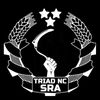Best Practices for a Safe Range Day
Note: Revised October 1st, 2025 due to member feedback.
In light of increased political temperatures, we're sending out the following general op-sec recommendations to hold a Safe Range Day:
Avoid politically aggressive symbols and slogans. Depending on your range, it might be best to avoid wearing politically aggressive clothing, patches, and stickers. This also includes aggressive dust covers on AR-15's and stickers on ammo cans.
If you have access to different ranges, try to rotate through them. If you primarily shoot on BLM or public land, try to have a variety of different locations. If you have access to several private ranges that are acceptable, rotate through them. If you primarily use one facility, avoid photos in general.
Go as a group. There is safety in numbers and it's always better to have a training buddy.
Avoid posting photos on social media. While we all love pictures of leftists posing as a group with their firearms and a chapter banner, be aware that even with pretty tight photo editing it's not difficult to ascertain the location of a range based on geographically identifiable features. The sky line, a certain style of table on a rifle range, the shape of a storage building, etc. can all be used to figure out a specific location once other markers have been confirmed. With chapters covering specific geographic areas, most of the detective work has already been done.
Always redact faces and identifying marks. Chapters have traditionally been pretty good on this point but it bears repeating: if you share pictures of chapter activities and include people, you should redact faces, tattoos, birth marks, scars, specific t-shirts (ie. a t-shirt for a local band or specific union), and vehicles along with license plates.
Avoid sharing specific locations for events publicly ahead of time. If you run a training or event that is open to the public, avoid listing that location in any social media advertising and instead provide a general area with the location being disclosed upon registration.
If possible, vet people ahead of time for public events. While casting a wider net can help with attendance and outreach, it's generally better to work with other leftist groups in your area as a way to screen attendees.
Operate on a need-to-know basis. Unless someone needs specific information (ie. a chapter instructor needs legal names signed on waivers to run a class at a range) then that information should generally not be provided. If practical, you can also poll who is going to be able to attend a range day, and send only them the details.
